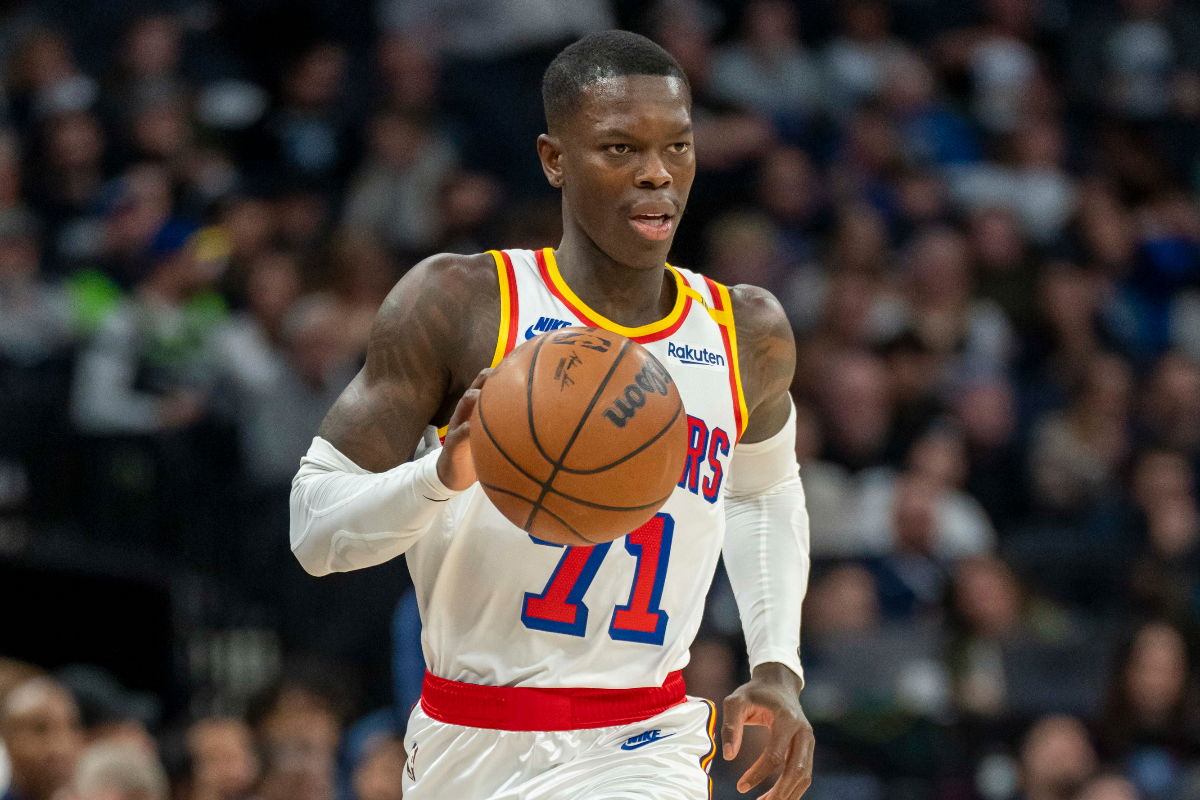
Imago
Dec 21, 2024; Minneapolis, Minnesota, USA; Golden State Warriors guard Dennis Schroder (71) dribbles the ball down the court against the Minnesota Timberwolves at Target Center. Mandatory Credit: Jesse Johnson-Imagn Images

Imago
Dec 21, 2024; Minneapolis, Minnesota, USA; Golden State Warriors guard Dennis Schroder (71) dribbles the ball down the court against the Minnesota Timberwolves at Target Center. Mandatory Credit: Jesse Johnson-Imagn Images
Before Dennis Schröder earned respect in the NBA, he had to earn it in rooms that didn’t even want him in the first place. He wasn’t the tallest. He wasn’t the most hyped. But he was always the fastest—and the most stubborn. Watch him for two minutes and you’ll see it: the defiance in how he drives, the attitude in every pass, every stare-down. Schröder doesn’t play to fit in—he plays like someone who had no choice but to stand out. That edge didn’t come from nowhere. It was shaped by loss, lifted by loyalty, and fueled by parents who refused to let him fold. To understand Dennis the player, you’ve got to understand Dennis the son.
Watch What’s Trending Now!
Who are Dennis Schroder’s parents? What is their nationality?
Dennis Schröder was born in Braunschweig, Germany, to his mother, Fatou, who immigrated from Gambia, and to his father, Axel Schröder, who was a white German. His mother held onto her Gambian identity, even after becoming a German citizen. Dennis grew up in a place where his skin color made him stand out—and not in a good way.
ADVERTISEMENT
In an interview with Marc J. Spears, the hooper opened up about it. “Why is your skin Black? Why are you dirty?” kids would say. It wasn’t just bullying—it was identity-shaking. But then basketball entered the picture. As he started winning games and bringing pride to his hometown, the tone shifted. “People started respecting and accepting me as a Black person,” he said.
It’s wild how doing something great for your country can suddenly make you worthy in their eyes. However, going back to his parents, we are sure that you might have a small picture of his parents now. But to get a wider picture, we will look at more details.
ADVERTISEMENT
Who is Dennis Schroder’s father, Axel Schroder?
Dennis Schröder’s father, Axel Schröder, was the reason why the hooper ever picked up a basketball. Axel had once played professionally in Gambia, where he met Dennis’ mother, Fatou. But by the time he was growing up in Braunschweig, Axel was managing a local tech firm and spending every free moment supporting his son’s dreams—before they were even dreams.
At first, Dennis didn’t care much about basketball. He was more into skateboarding and soccer. Well, how will he not? Imagine growing up in a country where soccer rules. This made him just a regular kid with zero clue where life was headed. Then came that conversation.
ADVERTISEMENT
It was 2009, and the hooper was unsure about everything, and Axel sat him down. He told his son what he saw in him. He saw talent. Potential. A way out. “He always said, ‘This is what you can do for a living. You can help your whole family with it… make sure everybody’s good,” the hooper later shared. That talk hit different. Six days later, the worst news hit the Schroders. Axel passed away! He was found in his chair after lunch with heart failure; just like that, he was gone.
Top Stories
PGA Tour Pro Loses His Cool After Being Denied Entry Into WM Phoenix Open Field

Giannis Antetokounmpo All but Confirms Warriors Trade With 6-Figure Decision: NBA Rumor

Patrick Cantlay & Scottie Scheffler Disapprove of Controversial Change Happening to PGA Tour Courses
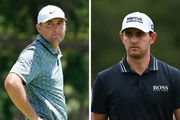
U.S. Senator Announces Bad News For NFL Fans After Donald Trump’s Ruling on ESPN’s Billion-Dollar Takeover

Brooks Koepka’s Unscathed Return Upsets Viktor Hovland as PGA Tour Pro Refuses to Hold Back
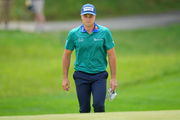
Ohio High School Football Coach Dies at 90, After Serving Community for 32 Years
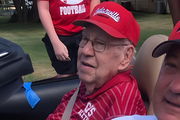
That loss flipped a switch in Dennis. Suddenly, basketball wasn’t just a hobby; it was the only way forward. “The goal was to play in the NBA, and I’m still doing it,” he said. Looks like that moment probably shaped him more than any coach ever could. It wasn’t just about skill. It was about purpose.
ADVERTISEMENT
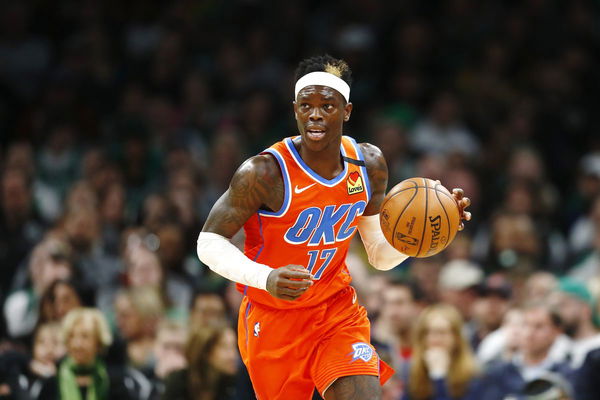
You know, even his jersey number has a special connection to his father. The Atlanta Hawks selected him as their 17th overall pick. That number meant more than just a pick slot. It was Axel’s favorite. Dennis wore 17 on every team he could, like a tribute stitched right into his jersey. “Seventeen is emotional for me,” he said. “To wear it every single night.”
ADVERTISEMENT
But when he reached the Boston Celtics, he couldn’t wear it with them as they had already retired jersey number 17 in honor of the late, great John Havlicek. So he flipped it. Wore 71. Same digits. Same meaning. With the Golden State Warriors, he did the same thing. “Yeah, I got to stay true to them,” he said. But now, as he is with the Detroit Pistons, he’s back with 17.
Axel never saw Dennis make it, but man, you can feel him in every step his son takes. Every drive, every assist, every quiet moment before tip-off—he’s there. Some stories don’t need polishing. They just need to be told. This one? It’s already perfect in its rawness.
ADVERTISEMENT
Who is Dennis Schroder’s mother, Fatou Schroder?
In 1992, Fatou Schröder arrived in Braunschweig, a quiet town in central Germany. Around 250,000 people lived there—not too big, not too small. She came from Gambia, carrying her hopes and starting fresh in a place far from home. Years later, she’d become the backbone of the Schröder family. When Axel died unexpectedly, everything changed. The weight shifted instantly to Fatou, and she didn’t have time to fall apart; she had kids to raise.
Being a single mom isn’t just hard—it’s uncompromising. No backup. No break. She worked, parented, worried, and pushed through. And still, she showed up with love. Dennis once said, “My mom is an amazing woman. She did a lot for us kids and for our family.” That kind of love? It doesn’t just shape a child. It builds their spine.
View this post on Instagram
ADVERTISEMENT
Fatou believed Dennis could be different, better. She told him to always go above and beyond. And he listened. The blond patch of hair above his left temple was her idea. She wanted him to stand out. Not just on the court, but everywhere. And honestly, that small act—just a streak of color—became part of his identity.
She supported his basketball dreams, even before they looked like dreams. Imagine supporting something you can’t even see yet that takes real vision. It’s easy to cheer once the crowd shows up. Fatou cheered when there were only empty stands.
Often, we underestimate mothers like her. She didn’t just raise a basketball star. She raised a kid through loss, racism, and loneliness. She built a foundation so solid that Dennis could leap off it toward something greater. There are not many details available about her life. But maybe that’s the point. She wasn’t looking for credit. She just did what needed doing. And Dennis never forgot it.
ADVERTISEMENT
ADVERTISEMENT
ADVERTISEMENT
ADVERTISEMENT